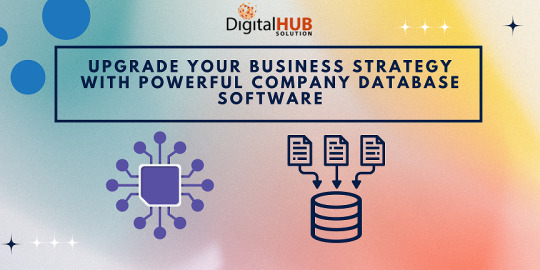#database software development
Explore tagged Tumblr posts
Text
in a lot of ways i feel like i should have gotten a different degree because i feel as an adult my interests are much more creatively driven. but the culture insists that you decide your fate at age 17-19 and then have to stick with it for the rest of your life
#i have a software engineering degree#i was going to actually go for game development but my mom convinced me to go broader bc she thought i could get pigeonholed and not find a#job. and i mean she’s probably right. and the game dev industry is Terrible#but i actually would have in retrospect gone for a third option. something either heavily database related OR#something that has nothing to do with computers at all. like a degree that would get me a job at a zoo or aquarium#i feel like i’d get more fulfillment out of that. but perhaps i am just feeling meh because i feel like#so behind on knowledge in tech compared to my coworkers because i don’t really have any outside of work interest in doing this kind of thing#for the most part. like maybe if i worked less than 40 hours a week i would#but i already spend so much time sitting at my desk that it’s like the last thing i want to do when i am off work#i much rather spend time with my gf and my dog. go on walks. do crafts.#but it feels sometimes like in tech you have to be obsessed with it and do it 24/7. like the culture is so. This Is Your Life#but to me it is Just A Job. and i feel like you’re kind of punished for that in this industry
6 notes
·
View notes
Text
I forget how different scientists and engineers are. What do you mean you want to meet on zoom for thirty minutes to talk at a high level. I want to look at four numbers for three hours in an office together
#my advisor wants a web based platform . I think we have a complex database that needs to use the university in house software developers#but I need to know what costs might be and how maintenance works and they’re using so many words in these emails
5 notes
·
View notes
Text
That time I restored a Database view
Recently at work we've been migrating an old database system to a new platform to save money - this kind of shit is what makes your business processes faster, cheaper and more correct - and this has entailed sifting through a lot of tables, views, and views made of tables and views!
As it happens the finance guy who does all the payroll and expenses is a great guy to work with and basically the one person who knows all the relevant business rules, but also basically treats databases like they're excel workbooks. As such you have a bunch of bits stitched to each other and we're just figuring out how to first move everything and then ease into a well-oiled relational model with no duplication and all together on a single database.
While we in the dev team were figuring out how to do this for finance we were recently testing out a modified version of a view built on top of the old version and accidentally deleted the old version and not the modified testing version.
Mistakes are bound to happen, but we needed to figure out how to either restore it or at least figure out how to work without it because finance people love their data views and reports. There are probably clever things you can do with any DBMS to find shit you just dropped and restore it from backup, but I then realised that I'd been tasked with generating all the scripts for the database objects. There had to be a script laying around!
Sure enough I went to dig up the build script for the dropped view, and I ran it.
I queried it, and everything was back in place.
Shit goes wrong sometimes, but having the right failsafes can really make a difference.
Script your shit, use backups, use version control!
3 notes
·
View notes
Text

Why Choose Java?
There are several features of Java due to which Java is popular for software development.
Simple Object-Oriented Portable Platform independent Secured Robust Architecture neutral Interpreted High Performance Multithreaded Distributed Dynamic
#besttraininginstitute#onlinetraining#traininginstitute#online#education#training#tutorial#coding#programming#database#java#javalanguage#javaprogramming#code#trending#technology#tech#engineering#software#development#softwaredevelopment
2 notes
·
View notes
Text







Angular SPA integrated with the Spotify Web API returns JSON metadata about music artists, albums, and tracks, directly from the Spotify Data Catalogue.
#angular#spotify#my music#firebase#firestore#data#database#backend#html5#frontend#coding#responsive web design company#responsivewebsite#responsivedesign#responsive web development#web development#web developers#software development#software#development#information technology#developer#technology#engineering#ui ux development services#ui#ui ux design#uidesign#ux#user interface
2 notes
·
View notes
Text

StaidLogic is an Information Technology Solutions and Services provider, helping organizations improve productivity by enabling digital and cloud transformation and by enabling process optimization with an unparalleled degree of agility
#enhanced#development#app development#software development#information technology#software#awscloud#testing#automation#database
0 notes
Text
Laravel 12 Query Scopes: A Step-by-Step Guide with Examples
Laravel 12 continues to empower developers with elegant and efficient tools for building robust applications. One of its standout features for managing database queries is Query Scopes.
#development#programming#web developers#laravel#php#software#backenddevelopment#coding#database#query
0 notes
Text
How much do Java developers earn?
1. Introduction to Java Developer Salaries
What's the earning potential for Java developers? This is a hot topic for students, new grads, and folks looking to get into software development. With the growth of full stack dev, cloud tech, and enterprise software, Java remains essential. Salaries depend on location, experience, and skills. For students in Coimbatore studying Java, knowing what to expect in the industry is key.
Key Points:
- Java developers are in demand across various fields.
- Knowing Spring Boot and full stack skills can boost your pay.
2. Java Developer Salary for Freshers
So how much can freshers make? Entry-level Java developers in cities like Coimbatore usually earn between INR 3 to 5 LPA. Completing a Java Full Stack Developer course typically leads to better pay since it covers a wider skill set. Employers often look for hands-on experience, which is why doing Java mini projects or internships is important.
Key Points:
- Fresh Java developers start around INR 3 LPA.
- Getting certified in Java can help you land a job.
3. Experienced Java Developer Salaries
With 3-5 years under your belt, what can you expect? Salaries typically range from INR 6 to 12 LPA. Those who take a Java training course in Coimbatore often find they earn more. Companies want people with strong backend skills and experience with tools like Spring, Hibernate, or Microservices.
Key Points:
- Mid-level Java developers can earn between INR 6 to 12 LPA.
- Knowledge of Spring and REST APIs can increase your salary.
4. Senior Java Developer Salary
InsightsFor those at a senior level with over 7 years of experience, earnings can start at INR 15 to 25 LPA. This varies based on company size and responsibilities, plus keeping up with new tech is crucial. Attending weekend Java classes or coaching sessions can help keep skills fresh.
Key Points:-
- Senior Java developers generally earn over INR 15 LPA.
- Full stack skills can lead to higher pay.
5. Java Full Stack Developer Salaries
People who complete a Java Full Stack Developer Course in Coimbatore often snag higher-paying jobs. Full stack developers with skills in Java, React, and DevOps can earn about 20% more than those focused solely on Java. If you're curious about Java salaries, investing in full stack training is a smart move.
Key Points:
- Full stack Java developers can earn about 20% more.
- Having both frontend and backend knowledge is important.
6. Salary Trends in Coimbatore and Tier-2 Cities
In Coimbatore, students of Java courses often ask about earning potential. Starting salaries might be a bit lower than in metro areas, but there’s room for growth. Remote work options are now more common, allowing locals to earn metro-level salaries.
Key Points:
- Java jobs in Coimbatore offer competitive pay.
- Remote work opens doors to higher salaries.
7. Java Certification and Salary Growth
Getting certified can mean a 30-40% pay bump compared to non-certified peers. Following a structured Java course helps build strong skills. Recruiters appreciate learning paths and real-world experience from platforms offering Java programs.
Key Points:
- Java certifications help boost your credibility.
- Structured training can get you better job offers.
8. Demand for Java Developers in 2025
Looking ahead, there’s expected growth of 15% in Java jobs by 2025. More students are signing up for Java Full Stack Developer Courses in Coimbatore, and chances for freshers are expanding. Mastering Java basics through tutorials can help set you up for success.
Key Points:
- Job openings for Java developers are on the rise.
- Full stack training fits well with job market trends.
9. Java Developer Skills That Influence Salaries
Earnings for Java developers often depend on skills like Spring Boot, Microservices, REST APIs, and cloud integration. Regular practice with Java exercises, internships, and coaching can create a strong candidate.
Key Points:
- Skills in demand directly impact salary.
- Ongoing learning is vital for career growth.
10. Conclusion and Brand Mention
So how much do Java developers actually make? It varies, but with the right skills and certifications, Java can lead to a rewarding job. Whether you’re just starting out or looking to advance, getting good training is key. If you want to begin or progress in your career, check out Xplore It Corp for Java courses and training designed to help you succeed.
Key Points:
- Look for recognized training programs.
- Xplore It Corp can help you close skills and salary gaps.
FAQs
Q1. How much do Java developers earn after certification?
A certified Java developer can earn 30-40% more than non-certified ones.
Q2. Are Full Stack Developer salaries higher?
Yes, full stack developers generally make 20-25% more due to their wider range of skills.
Q3. Does location affect salaries?
Absolutely, metro cities tend to pay more, but remote jobs are helping close that gap in places like Coimbatore.
Q4. Is a Java internship necessary?
Not strictly necessary, but internships can really enhance a resume, especially for those just starting out.
Q5. What's the best way to learn Java step by step?
Join a structured course, like those from Xplore It Corp, and practice with Java tutorials and coding exercises.
#Java programming language#Object-oriented programming in Java#Java development tools#Java code examples#Java frameworks (Spring#Hibernate)#Java for web development#Core Java concepts#Java backend development#Java IDE (Eclipse#IntelliJ)#Java Virtual Machine (JVM)#Java syntax and structure#Java API integration#Java debugging tools#Java software applications#Java interview preparation#Java certification training#Java app development#Java database connectivity (JDBC)#Java deployment techniques#Enterprise Java development.
0 notes
Text
The Digital Brain - Unlocking the Power of Computer Science

Dive into the world of technology with a comprehensive Computer Science course designed to equip you with real-world skills and foundational knowledge. This course covers everything from programming fundamentals, data structures, and algorithms to computer networks, database management, and software development principles
Visit Attitude Academy
📚 Learn Computer Science : Attitude Academy
📍 Visit Us: Yamuna Vihar | Uttam Nagar
📞 Call: +91 9654382235
🌐 Website: www.attitudetallyacademy.com
📩 Email: [email protected]
📸 Follow us on: attitudeacademy4u
.
#computer science course in uttam nagar#computer science training in yamuna vihar#data structures course#database management course#software development training#software development course
0 notes
Text
Why Businesses in London Are Choosing Bespoke CRM

In the competitive business landscape of London, staying ahead means more than just offering great products or services—it requires smart, tailored systems that streamline operations and enhance customer experiences. That’s why an increasing number of companies in London are turning to bespoke CRM London solutions.
Unlike off-the-shelf CRM software, a bespoke CRM is custom-built to match the specific needs of your business. It’s no longer just about managing contacts—it’s about improving relationships, automating workflows, and making smarter business decisions.
What Is a Bespoke CRM?
A bespoke CRM London is a fully customised software system designed around the processes, goals, and workflows of a specific business. It’s built from the ground up to solve your unique challenges—whether you're managing sales leads, customer support, project timelines, or multi-team collaborations.
Top Reasons London Businesses Are Making the Switch
1. Tailored to Fit Business Needs
London businesses vary greatly in size, industry, and structure. A bespoke CRM adapts to your internal processes instead of forcing you to change them. From managing sales funnels to customer retention strategies, everything can be built around what already works for you.
2. Scalable for Growth
Off-the-shelf CRMs may become limiting as your business evolves. Bespoke systems are designed to grow with your business, adding features and integrations as needed—without the hassle of starting over or switching platforms.
3. Better Integration with Existing Tools
London companies often rely on a range of tools—email platforms, invoicing software, marketing tools, and more. A bespoke CRM London can integrate seamlessly with your existing tech stack, creating a unified digital ecosystem.
4. Enhanced Data Control and Security
Data privacy is a major concern, especially for UK businesses subject to GDPR regulations. With a bespoke CRM, you have complete control over how your data is stored, accessed, and protected.
5. Improved Customer Experience
A custom CRM helps your team track every client interaction and history, allowing for personalised service and faster response times. This leads to higher satisfaction, stronger loyalty, and more repeat business.
6. Competitive Advantage
In London’s fast-paced market, efficiency matters. A CRM that works exactly how your team needs it to can significantly boost productivity and give you an edge over competitors still relying on generic systems.
Bespoke CRM: Ideal for London’s Diverse Industries
Whether you're a tech startup in Shoreditch, a law firm in the City, or a creative agency in Soho, a bespoke CRM can be adapted to your industry-specific requirements. Features can include:
Custom sales pipeline stages
Client onboarding tools
Case or ticket tracking
Automated invoicing and follow-ups
Real-time analytics and dashboards
Why Work with a London-Based CRM Developer?
Partnering with a local developer means:
Direct communication and face-to-face collaboration
Faster support and system updates
Deep understanding of your market and compliance needs
Final Thoughts
As more London businesses realise the limitations of one-size-fits-all CRM systems, the demand for bespoke CRM London development is growing. A custom solution can save time, reduce costs, and increase both team and customer satisfaction. Visit more information for your website
0 notes
Text
APIs (Application Programming Interfaces) are the backbone of modern digital ecosystems. They enable seamless interaction between applications, platforms, and services. However, their exposure makes them a prime attack vector. API security testing identifies vulnerabilities in APIs to ensure data confidentiality, integrity, and availability.
#eCommerce software development services#API testing services#database performance testing#automated testing of REST API
0 notes
Text
Hire Expert Python Developers for Custom Solutions

Hire skilled Python developers to build scalable, secure, and efficient applications. From web development to data analysis and automation, our experts deliver tailored Python solutions that meet your specific needs. Leverage Python’s versatility and power to drive your business forward with innovative and reliable software.
#web development#python developers#website design#freelance python developer#database management#python#software
0 notes
Text
How to Hire the Right MySQL Engineer: Skills to Look For

For any business that handles structured data a solid database foundation serves as the key. MySQL continues to dominate the market as one of the most reliable and widely utilized relational database systems. Whether it’s managing e-commerce transactions, user profiles, or analytics, having the right talent can have a significant impact on performance and scalability.
That’s why several tech companies are considering hiring database engineers with MySQL proficiency. This helps to manage the growing database needs. But how do you know that you are hiring the right fit for the job? In this article we will breakdown what you need to look for when you set out to hire these experts.
Key Technical and Practical Skills Every Business Should Prioritize
Strong knowledge of SQL and database design
Fundamental SQL expertise is a must when hiring MySQL engineers. Your ideal applicant ought to:
Create secure and optimized SQL queries.
Recognize data modelling and normalization.
Understand performance indexing techniques.
Have the ability to create triggers and stored procedures.
These abilities allow a MySQL engineer to increase speed and storage efficiency, which is essential for rapidly expanding tech companies.
Experience in performance tuning and troubleshooting
Performance issues arise as your data grows. A proficient MySQL developer ought to be able to:
Find and fix slow queries.
Keep an eye on and maximize database load.
Make use of programs such as MySQLTuner, EXPLAIN, and performance schema.
Set up the server's parameters for best performance.
In SaaS setups or real-time applications where latency is a concern, this becomes even more crucial.
Data backup, security, and recovery skills
A business can be destroyed by data breaches or loss. A trustworthy MySQL developer will:
Configure automated backup plans.
Put user roles and permissions into practice.
Secure connections and encrypt data.
Create scenarios for catastrophe recovery.
These abilities guarantee data security and regulatory compliance, which is particularly important for the high-security, healthcare, and financial sectors.
Integration and collaboration capabilities
MySQL engineers don't work alone. They frequently work along with software developers and backend teams. You might also have to:
Fill positions like hiring backend developers to assist with application-side logic.
Employ database engineers for distributed or more complicated settings.
Hire software developers to create data-driven, scalable products.
A MySQL engineer with cross-departmental collaboration skills guarantees more efficient operations and agile delivery.
Familiarity with modern tools and frameworks
Present-day MySQL programmers must to be knowledgeable about:
ORMs such as Eloquent, Sequelize, or Hibernate.
Cloud-based solutions like Google Cloud SQL and AWS RDS.
Tools for monitoring such as Prometheus or Datadog.
Pipelines for CI/CD database updates.
For the majority of tech businesses that use cloud-native solutions, this demonstrates adaptability in contemporary development settings.
Closing Remarks
If you are serious about your data infrastructure, you should hire MySQL developers. Seek applicants that have excellent technical proficiency together with teamwork and problem-solving abilities. Results can be increased by matching your MySQL specialist with the appropriate team, such as hiring software engineers, regardless of whether you're managing a legacy system or scaling a SaaS platform. Choosing the proper database hiring is a commercial choice for tech firms, not just a backend one.
0 notes
Text

How to Balance Fixing Performance Issues and Adding New Features in Web Applications?
In today’s digital landscape, web applications are essential for business operations, marketing, and consumer involvement. As organizations expand and consumer expectations rise, development teams are frequently confronted with the difficult task of balancing two key priorities: addressing performance issues and introducing new features.
While boosting performance improves the user experience and increases efficiency, new features are required to remain competitive and meet market demands. Prioritizing one over the other, on the other hand, might have negative consequences—performance concerns can lead to a poor user experience while failing to innovate can result in a competitive disadvantage.
This blog delves into how to balance improving performance and introducing new features to web apps, allowing firms to satisfy technical and market demands efficiently.
Why Balancing Performance and New Features Is Crucial
A web application‘s success depends on both its performance and its features. However, relying entirely on one might result in imbalances that impair both user happiness and business progress.
Performance:Performance is an important component that directly influences user retention and happiness. Users can become frustrated and leave if the application has slow loading times, crashes, or problems. Ensuring that your web application runs smoothly is essential since 53% of mobile consumers would quit a site that takes more than three seconds to load.
New Features:On the other hand, constantly adding new features keeps users interested and promotes your company as innovative. New features generate growth by attracting new consumers and retaining existing ones who want to experience the most recent changes.
The dilemma is deciding when to prioritize bug fixes over new feature development. A poor balance can harm both performance and innovation, resulting in a subpar user experience and stagnation.
Common Performance Issues in Web Applications
Before balancing performance and features, it’s important to understand the common performance issues that web applications face:
Slow Load Times: Slow pages lead to higher bounce rates and lost revenue.
Server Downtime: Frequent server outages impact accessibility and trust.
Poor Mobile Optimization: A significant portion of web traffic comes from mobile devices and apps that aren’t optimized for mobile fail to reach their potential.
Security Vulnerabilities: Data breaches and security flaws harm credibility and user trust.
Bugs and Glitches: Software bugs lead to poor user experiences, especially if they cause the app to crash or become unresponsive.
Strategic Approaches to Fixing Performance Issues
When performance issues develop, they must be handled immediately to guarantee that the online application functions properly. Here are techniques for improving performance without delaying new feature development:
Prioritize Critical Issues:Tackle performance issues that have the most significant impact first, such as slow loading times or security vulnerabilities. Use analytics to identify bottlenecks and determine which areas require urgent attention.
Use a Continuous Improvement Process:Continuously monitor and optimize the application’s performance. With tools like Google PageSpeed Insights, you can track performance metrics and make incremental improvements without major overhauls.
Optimize Database Queries:Slow database queries are one of the leading causes of web app performance issues. Optimize queries and ensure that the database is indexed properly for faster access and retrieval of data.
Reduce HTTP Requests:The more requests a page makes to the server, the slower it loads. Minimize requests by reducing file sizes, combining CSS and JavaScript files, and utilizing caching.
5. Leverage Caching and CDNs: Use caching strategies and Content Delivery Networks (CDNs) to deliver content quickly to users by storing files in multiple locations globally.
Why Adding New Features is Essential for Growth
In the rapidly changing digital environment, businesses must continually innovate to stay relevant. Adding new features is key to maintaining a competitive edge and enhancing user engagement. Here’s why:
User Expectations:Today’s consumers expect personalized experiences and constant innovation. Failure to add new features can lead to customer churn, as users may feel your web application no longer meets their needs.
Market Differentiation:Introducing new features allows your application to stand out in the marketplace. Unique functionalities can set your app apart from competitors, attracting new users and increasing customer loyalty.
Increased Revenue Opportunities:New features can lead to additional revenue streams. For example, adding premium features or new integrations can boost the app’s value and lead to increased sales or subscription rates.
4. Feedback-Driven Innovation: New features are often driven by user feedback. By continuously developing and adding features, you create a feedback loop that improves the overall user experience and fosters customer satisfaction.
Read More: https://8techlabs.com/how-to-balance-fixing-performance-issues-and-adding-new-features-in-web-applications-to-meet-market-demands-and-enhance-user-experience/
#8 Tech Labs#custom software development#custom software development agency#custom software development company#software development company#mobile app development software#bespoke software development company#bespoke software development#nearshore development#software development services#software development#Website performance testing tools#Speed optimization for web apps#Mobile-first web app optimization#Code minification and lazy loading#Database indexing and query optimization#Agile vs Waterfall in feature development#Feature flagging in web development#CI/CD pipelines for web applications#API performance optimization#Serverless computing for better performance#Core Web Vitals optimization techniques#First Contentful Paint (FCP) improvement#Reducing Time to First Byte (TTFB)#Impact of site speed on conversion rates#How to reduce JavaScript execution time#Web application performance optimization#Fixing performance issues in web apps#Web app performance vs new features#Website speed optimization for better UX
0 notes
Text
Upgrade Your Business Strategy with Powerful Company Database Software

In the current digital world, data is considered valuable. The way businesses acquire, save, and make use of this data can greatly impact their continuity and growth. Since the data keeps on multiplying at an enormous rate, businesses require powerful resources to manage it efficiently. One of the most critical resources at a business's disposal is company database software. With an appropriate database system in place, a business can optimize its processes, improve its decision-making, and increase productivity overall.
This article will analyze the importance of company database software, the impact of database engineering in developing many efficient systems, and why a database for business is essential to a company.
What is Company Database Software?
At its most fundamental level, company database software is a program that enables users to store, manage and retrieve information in a well-structured manner. This software is used to process and store a lot of information, which makes it simple to retrieve data when needed. Unlike simple spreadsheets, company database software is built for scalability, flexibility, and speed. It allows businesses to store all sorts of crucial information including customer details, sales, and inventory data.
With modern database software, data integrity, data updating, automated backup, and access restrictions are also features of the package. It is a vital component for businesses that depend on precise and up-to-date data to make essential decisions.
The Purpose for Developing a Database
The first step toward building a database is understanding its purpose, developing a query language and data models, designing its schemas, and developing reports for data retrieval and analysis. The accuracy of the data and its retrieval system along with the performance of the database system is the prime goal for these steps.
Most companies that adopt a company database software would often prefer it to be custom made so that it mirrors the company’s data and processing needs. A retail store would, for instance, want to have a database to maintain their inventory levels while a financial institution may need a complex system to manage their transactions securely.
Considering businesses have so much data and information, maintaining accuracy along with providing value for insight-access freedom is paramount. Hence, correct optimization structure helps make and achieve certain business objectives on the reliability of the information obtained. And, for that reason, the data system should incorporate a progression to support any increase in the volume of a company’s data.
What Is the Importance of Maintaining a Database for Your Business?
Firms have to implement an efficient database for the business for them to operate in the current market environment. Here are some key reasons why a business database is essential for any organization:
Increased Productivity: For a firm, data retrieval and entry is one of the most hectic tasks that consumes a lot of time. With the right business database software system, most tasks can be automated eliminating the need for constant human intervention. Consider if a customer file or inventory level needs to be updated. With an automated system, it can be done without manual intervention.
Enhanced Data Quality: Errors can hamper considerably influence the outcomes of the decision-making process. A company database software system ensures that users access current data by eliminating discrepancies. To enhance the quality of information provided to those who make the decisions, rules can be set that would eliminate bad data entries from the system.
Improved Efficiency: A database for business enables decision makers to have real-time access to the information that is most relevant to making sales, following customer activity, or monitoring market activity. A sophisticated database system allows for rapid report generation and swift data manipulation.
Scalability: An increase in business revenue directly correlates with the amount of data that needs to be processed. A thoroughly designed database system guarantees that the database is able to scale up as the business grows, and more data is available without degrading the performance of the system. This is especially important for companies that want to succeed in the long run.
Data Security: Maintaining sensitive business data security is a matter of importance for any company. Most contemporary database software comes with user's rights management, data protection and regular data backup features that can be set at the company level. With these systems in place, it is possible to ensure that company data is secure against unauthorized access, theft, or damage.
Improved Collaboration: Employees from different divisions can now get the data they require at their fingertips courtesy of cloud-based systems. This helps promote collaboration as people from various teams can share information, monitor developments, and make decisions based on the same data.
Tailored Database Solutions for All Business Types and Sizes
Every organization has different needs in terms of managing data. Company database software can address a majority of needs, but sometimes, a custom database offers a better solution. Custom database development makes it possible for businesses to develop a system that meets their requirements, making certain that the software accommodates intricate workflows, processes, and industry standards.
As an illustration, an e-commerce company might need a database that interfaces with online payment processing, manages order tracking, and inventory control in real-time. Meanwhile, a healthcare provider might need to have a more sophisticated system for patient records, appointment scheduling, and billing information management.
Outsourcing the data management system also allows deeper integration of the database with other business systems, for example, customer relationship management (CRM) and enterprise resource Planning (ERP) or accounting systems. This integration enables all departments to work with one single system and result in more effective and timely business decisions.
Conclusion
Effective data management is critical in business these days. Company database software makes it easy for businesses to organize, store, and access their data. Companies that invest in database systems development ensure that their database systems are accurate, scalable, and secure so the business and its environment can grow together.
In addition, the right business database design allows companies to make better decisions which increases the efficiency of business operations, productivity, and customer satisfaction. As businesses continue to use data as a tool for boosting their competitive edge, the need for proven, bespoke database solutions will continue rising.
0 notes
Text
full stack web development training in chandigrh
#Chandigarh has emerged as a hub for IT and software development training#offering aspiring developers opportunities to master Full Stack Web Development. This training equips learners with the ability to build en#covering both front-end (user interface) and back-end (server and database) development.
1 note
·
View note